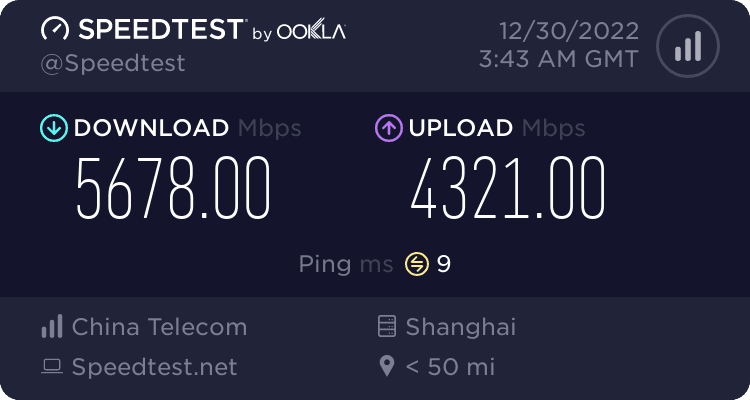Internet speed tests are a useful tool for determining the speed of your internet connection.
By measuring how fast data can be transferred between your device and the internet, these tests can help you determine whether you’re getting the internet speeds you’re paying for.
Still, not all internet speed tests are created equal. In this blog, we will explore the concept of fake internet speed tests and how to identify them.
What is a Fake Speed Test?
A fake speed test is a tool that purports to measure your internet connection speed, but in reality, it provides inaccurate or manipulated results.
These tests may be designed to deceive users into thinking they have a faster or more stable connection than they do.
Fake internet speed tests can differ from legitimate tests in several ways, including the use of unrealistic results, pop-up ads, and requests for personal information.
Why are Fake Internet Speed Tests Created?
There are several reasons why fake internet speed tests might be created.
In some cases, these tests may be used to deceive people into believing that they have a superfast or more stable connection than they do.
This could be done to deal with a product or service or simply to induce advertisement profit.
In other cases, fake internet speed tests may be created as a form of malware or phishing, designed to steal particular information from people.
How to Identify a Fake Internet Speed Test
So, how can you tell if an internet speed test is fake? There are a few signs to watch out for:
Unrealistic results:
If an internet speed test is providing results that seem too good to be true, it may be fake. Legitimate tests should provide results that are in line with what you expect based on your internet plan and connection type.
Pop-up ads:
If an internet speed test is filled with pop-up ads or other distractions, it may be less reliable. Legitimate tests typically do not have these types of distractions.
Requests for personal information:
If an internet speed test is asking for personal information such as your name, address, or credit card number, it is likely, not legitimate. Legitimate tests do not typically ask for this type of information.
To determine if an internet speed test is legitimate, you can also check the reputation of the website and compare the results with other speed tests. If you are unsure whether a test is legitimate, it is always a good idea to do your research before trusting the results.
Popular internet speed testers (the legit ones)
Here are some of the most popular internet speed testers online:
- Speedtestgo.com: This is another popular internet speed tester that is designed to measure the speed of your internet connection. It is generally considered to be accurate, but like any other internet speed tester, it may not provide the most accurate results in all cases.
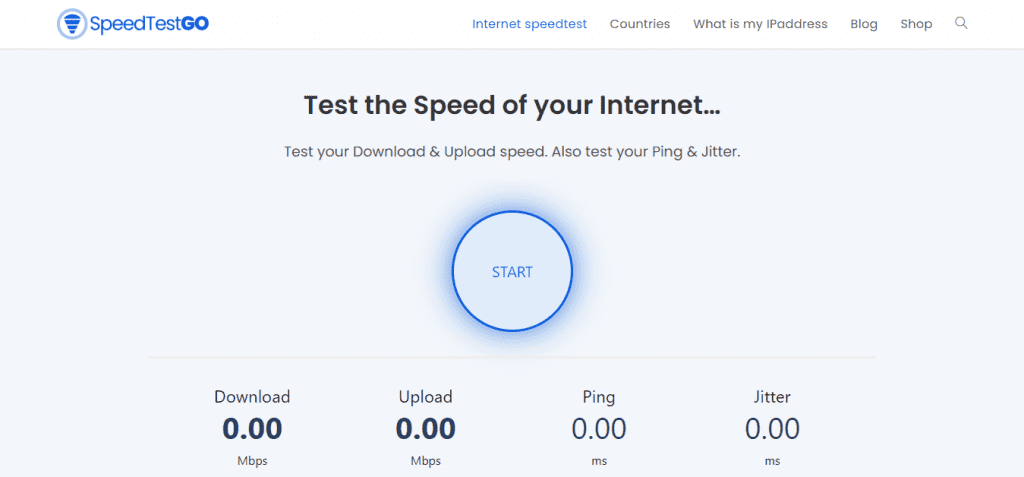
- Speedtest.net: This is a popular internet speed tester that is owned by Ookla. While it is generally considered to be accurate, some users have reported that it can provide inflated results, especially on faster connections.
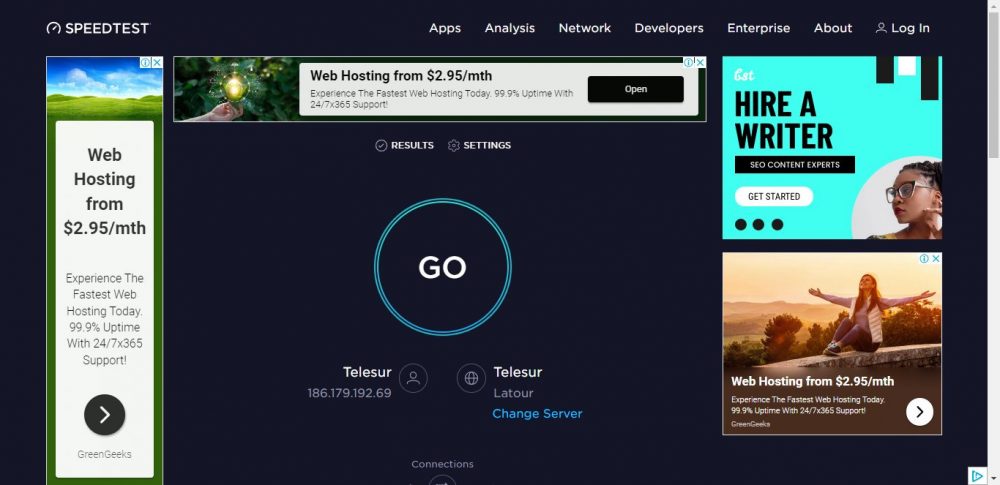
- Fast.com: This is a speed tester owned by Netflix that is designed to measure the speed of your internet connection. It is generally considered to be accurate, but like any other internet speed tester, it may not provide the most accurate results in all cases.
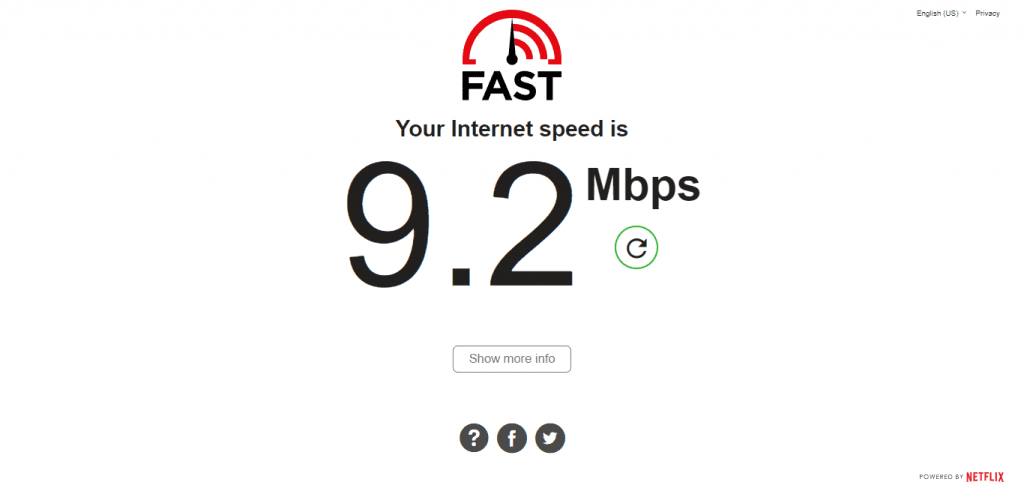
It’s important to note that no internet speed tester is 100 accurate, and the results you get may vary depending on a variety of factors, including the time of day, the distance of the server you’re testing to, and the quality of your internet connection.
However, it may be a good idea to try many different testers to get a more accurate picture of your internet connection speed, If you’re concerned about the delicacy of your internet speed test results.
Examples of fake internet speed testers websites
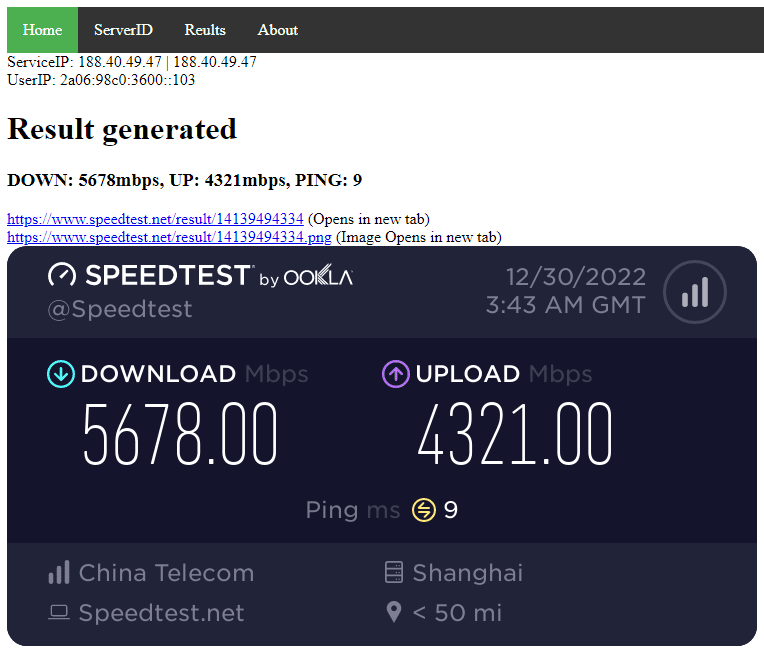
It’s important to note that not all internet speed testers are fake or intentionally misleading.
However, some speed testers may not provide accurate results for a variety of reasons.
Example of fake internet speed testers:
Conclusion about fake speed test
Fake internet speed tests can be deceiving and potentially dangerous if they scrape your personal information, so it’s important to be conservative when using these tools.
By understanding what fake internet speed tests are and how to identify them, you can cover yourself and ensure that you’re getting accurate results.
Always do your exploration before trusting the results of an internet speed test, and if you are not sure, seek out an internet speed testing tool with a good reputation.
FAQ
How do fake internet speed tests differ from legitimate tests?
A: Fake internet speed tests may provide unrealistic or manipulated results, contain pop-up ads or other distractions, or request personal information from users. Legitimate internet speed tests, on the other hand, should provide accurate and reliable results without these types of distractions or requests for personal information.
Can fake internet speed tests harm my device?
A: In some cases, fake internet speed tests may be used to distribute malware or phishing attacks, which could potentially harm your device or compromise your personal information. It is always a good idea to be cautious when using any type of internet tool and to do your research before trusting the results.
How can I ensure that I am using a legitimate internet speed test?
A: To ensure that you are using a legitimate internet speed test, you can check the reputation of the website and compare the results with other speed tests. You can also look for signs that the test may be fake, such as unrealistic results, pop-up ads, or requests for personal information. If you are unsure whether a test is legitimate, it is always a good idea to do your research before trusting the results.
Are there any reliable internet speed tests that I can use?
A: There are numerous estimable internet speed test tools available online. Some popular options include Ookla’s Speedtest, Google’s Internet Speed Test, and Fast.com. These tools are generally considered to be dependable and accurate, but it’s always a good idea to compare the results with other speed tests to ensure the delicacy of the results.
How to fake Internet speed test?
There are a few ways to fake an internet speed test. One way is to use a speedtest faker website. These websites allow you to generate fake speed test results by simply entering your desired download and upload speeds.
Another way to fake an internet speed test is to use a network throttling tool. These tools allow you to limit the speed of your internet connection, which can make it appear that your internet connection is slower than it actually is.
Finally, you can also fake an internet speed test by using a VPN. A VPN can encrypt your traffic and route it through a different server, which can make it appear that your internet connection is faster than it actually is.
How reliable are internet speed tests?
Internet speed tests are generally reliable, but there are a few factors that can affect the accuracy of the results, such as:
– The distance between your device and the server you are connecting to
– The type of connection you are using (wired or wireless)
– The amount of traffic on the network
– The time of day you are running the test
– The hardware and software on your device
To get the most accurate results from an internet speed test, it is important to:
– Connect your device directly to your router with an Ethernet cable, if possible.
– Choose a server that is located close to your home.
– Run the test at a time of day when the network is not heavily congested.
– Make sure that your device is up to date and that you are running the latest version of your web browser.
If you are not sure whether or not your internet speed test results are accurate, you can try running the test multiple times at different times of day and from different locations in your home. You can also compare your results to the speed that your internet service provider (ISP) offers.
What is considered a fast internet speed?
What is considered a fast internet speed depends on your needs. If you are only using the internet for basic tasks such as browsing the web and checking email, then a speed of 10 Mbps or higher should be sufficient. However, if you are streaming video, playing online games, or using other bandwidth-intensive applications, then you will need a faster speed.
Here is a general guide to what is considered a fast internet speed for different activities:
Basic tasks: 10 Mbps or higher
Streaming video: 25 Mbps or higher for HD video, and 50 Mbps or higher for 4K video
Online gaming: 10 Mbps or higher for most games, but some games may require a faster speed
Multiple users: 25 Mbps or higher for a household with multiple users streaming video, playing online games, and working from home

